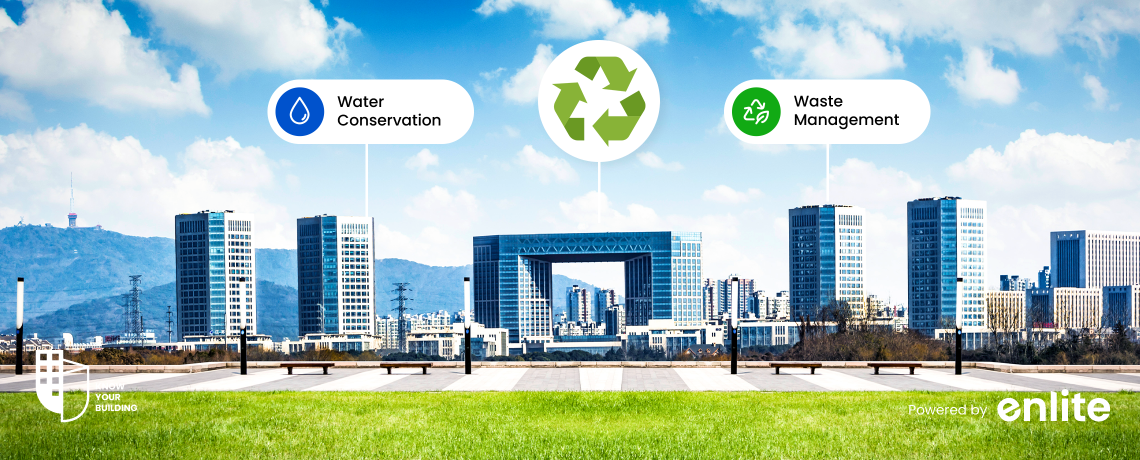While energy efficiency often takes center stage in sustainability discussions, water conservation and waste management are equally crucial for creating environmentally responsible commercial properties. This article delves into the significance of these practices, exploring effective strategies and highlighting their benefits for commercial real estate.
Importance of Water Conservation in Commercial Properties:
Water is a precious resource, and its conservation is vital for sustainable building operations. In commercial properties, efficient water use can reduce operational costs, mitigate water scarcity issues, and demonstrate environmental stewardship.
Effective Water Conservation Strategies:
1. Low-Flow Fixtures:
- Installing low-flow faucets, showerheads, and toilets can significantly reduce water usage without compromising functionality.
2. Rainwater Harvesting:
- Capturing and storing rainwater for non-potable uses, such as irrigation and cooling tower makeup water, can substantially decrease reliance on municipal water supplies.
3. Smart Irrigation Systems:
- Implementing smart irrigation systems with moisture sensors and weather-based controllers ensures optimal water use for landscaping, reducing wastage.
4. Greywater Recycling:
- Treating and reusing greywater from sinks, showers, and laundry for toilet flushing and irrigation can conserve potable water and reduce overall consumption.
Importance of Waste Management in Commercial Properties:
Effective waste management is critical for minimizing environmental impact, complying with regulations, and promoting a circular economy. Proper waste management practices help reduce landfill use, conserve resources, and lower greenhouse gas emissions.
Comprehensive Waste Management Practices:
1. Waste Audits:
- Conducting waste audits helps identify the types and quantities of waste generated, providing a basis for developing targeted waste reduction strategies.
2. Recycling Programs:
- Implementing comprehensive recycling programs for paper, plastics, metals, and electronics encourages responsible disposal and resource recovery.
3. Composting:
- Establishing composting programs for organic waste, such as food scraps and landscaping debris, can divert significant waste from landfills and produce valuable compost for landscaping.
4. Waste Reduction Initiatives:
- Promoting waste reduction initiatives, such as paperless offices, reusable containers, and bulk purchasing, helps minimize waste generation at the source.
Benefits of Integrated Water Conservation and Waste Management:
Integrating water conservation and waste management practices enhances overall sustainability efforts in commercial properties. Benefits include reduced operating costs, improved regulatory compliance, enhanced tenant satisfaction, and positive environmental impact.
Conclusion:
In conclusion, beyond energy efficiency, water conservation and waste management are essential components of sustainable commercial property management. By adopting effective strategies and integrating these practices into overall sustainability plans, commercial real estate stakeholders can significantly contribute to environmental conservation and operational efficiency.














